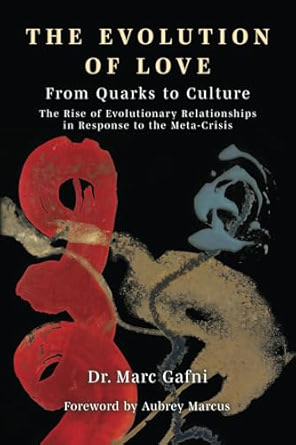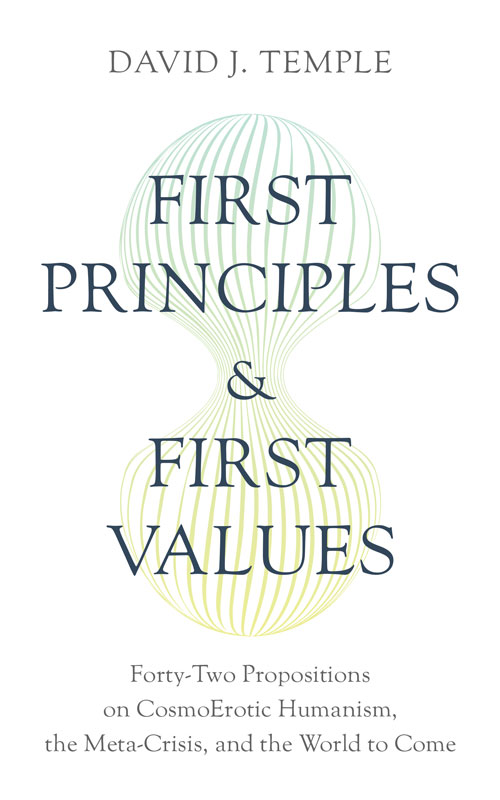The Infinite Intimate: Cosmic Eros, Sacred Story, and the Anthro-Ontology of Value
On the footnotes2plato podcast, Host Matt Segall dialogs about CosmoErotic Humanism with Marc Gafni and Zack Stein
Join Matt Segall in conversation with Dr. Marc Gafni and Dr. Zak Stein:
In Matt’s voice:
In this conversation with Marc Gafni and Zak Stein, I began by asking about philosophy’s relevance in our current moment of crisis:
What role can philosophy play?
As philosophers, we like to engage in dialogue, but our present world seems very far from dialogue being what guides the decisions that are shaping the immediate future. I invited us to consider how we can feel like what we’re doing here is meaningful when we’re facing this type of rivalrous, revenge-based antagonism.
Regarding my use of “as if” language in my review of First Principles and First Values that Marc questioned, I explained that the “as if” is an invitation to my readers rather than a direct statement of my own position. It is intended as a bridge to the dominant culture, as a pragmatic invitation to see how people’s lives might change if they took these ideas seriously. I shared my grounding in process philosophy and particularly C. S. Peirce’s pragmaticist approach to theologizing: When I use terms like “as if,” it’s really just my way of signaling the participatory nature of truth and the reality of value. It’s not just waiting out there for us to find it. We have to become worthy of it. I emphasized that we need to imaginally body forth truth, goodness, and beauty to maintain them as realities. That’s our crucial role as human beings.
I asked whether consciousness being fundamental implies that the human being is not just the product of an evolutionary process but something more like the very medium of evolution’s expression. I brought in Schelling’s insight that “the human soul is conscientious of creation”—that we’re tapping into our own memory when doing evolutionary cosmology, not just abstractly reconstructing the universe’s exterior development. The intimacy paradigm Marc and Zak are proposing is something like a poetic proof of the existence of God as that than which nothing more intimate can be felt, a phenomenological proof of the existence of the divine ground within and between us. This divine ground, ultimately, is relational, and thus personal.
Story is the source code of culture and consciousness and of all Reality-all the way up and down the evolutionary chain. Story is the attempt to gather information about the nature of Reality and translate it into narrative frameworks bounded by Value.
Stories that organize culture are “Stories of Value, backed by the Universe”.
Postmodernity argues that Reality is just a story, and that all stories are created equal (equally meaningless of inherent value) because value itself is not real. And therefore, all stories of value are but social constructs, fictions, or figments of our imagination.
The postmodernists are wrong.
Story is real. And not all stories are equal. There are better and worse stories. A better story is an eternal and evolving story of Value. Evolving Value backed by the Universe.
A worse story-one with flawed, incomplete, or distorted plotlines of distorted value, like the story we’ve lived in the West for the better part of the last century-can, and will, bring us to the brink of existential risk, the potential end of humanity as we know it.
Value is both real, backed by the Universe, and like everything in the Universe, value evolves. The evolution of value itself is the evolution of love, as Eros and evolution themselves, are inherent plotlines of value in the great story of Cosmos.
The goal of The Evolution of Love, and its companion volume Whole Mate: The Future of Relationships, is to provide a first articulation of a new, better story of Value in the domain of relationship. At the core of this New Story of Value are a new Universe Story and a new narrative of identity, which we have called CosmoErotic Humanism and Homo amor.
If we fail to articulate this New Story of Value, the results will be excruciating for billions of human beings and for the entire life system–as for the trillions of lives that will remain unborn.
All of the past depends on us to fulfill its dreams.
All of the present depends on us to live.
All of the future depends on us to be born.


